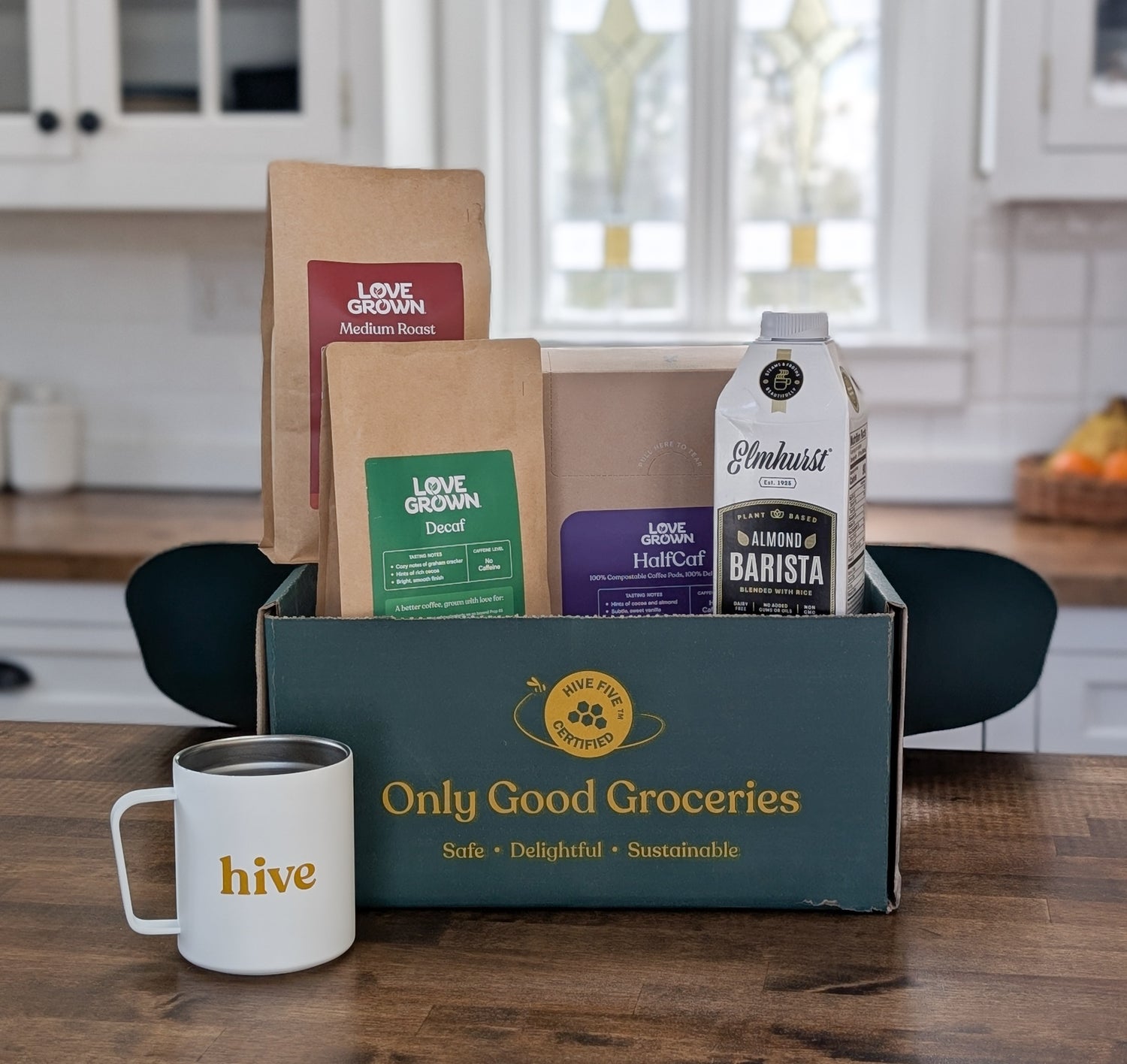Keeping recycling simple
Widely recyclable items
For the most part, glass, aluminum, tin, plastics 1 & 2 (your usual water bottle or milk jug), paper, and cardboard are widely recyclable. Now, it depends where you live because recycling laws vary from region to region. Different jurisdictions receive different amounts of funding, so it’s all about what resources your community has. We encourage you to check in with your local recycling center to find out what they recycle. Not sure how to find your local recycling center? We recommend looking at your curbside recycling bin sitting outside. The private company that collects your recyclables usually has information on their website about the types of materials they accept or reject.
Clean, dry, and empty
After finding out what your recycling center accepts, it’s extremely important that whatever you place in your recycling bin is clean, dry, and empty. Single-stream waste collection programs (“all recyclables go in one bucket” systems) are constantly threatened by contamination, so limiting the amount of contamination entering the recycling stream increases the chances that your items will be recycled.
Don’t (plastic) bag your recyclables
Most communities can’t recycle items put inside a plastic bag since they can add to the contamination of the recycling stream. And if you’re recycling the right way, you shouldn’t have to worry about stinky or dirty (remember: clean, dry, and empty!) recycling bins. However, if you’d like to use a bag, we suggest using an open paper bag—they’re typically recyclable themselves.

Common Recycling Misconceptions
All plastics are recyclable
As a rule of thumb, only clear or light blue plastics that are labeled 1 & 2 are widely accepted in curbside collection programs. Unfortunately, almost all the other resin types, like plastic bags and drinking straws, don’t get recycled at all. According to the EPA, the recycling rate for plastic 1 & 2 bottles and jars in 2018 was around 29% each—much higher than other plastic containers. When it comes to recycling those different plastic containers, you can look for specialty recyclers nearby or utilize TerraCycle® (more on that later!).
The “recycling symbol” means a material is recyclable
The recycling symbol on the bottom of product packaging simply means the material is capable of being recycled if (and that’s a big if) the right infrastructure is in place. For the most part, the U.S. doesn’t even have a system that can reliably recycle plastics 1 & 2. So when it comes to recycling other plastics (anything labeled 3-7), it’s safe to assume most of it is going to the landfill. Have no fear, though. Keep reading for a game-changing solution for all those hard-to-recycle plastics.
Items that are always a “NO”
Composite materials
What is a composite material? Composite materials are made of two or more substances, like envelopes with bubble wrap integrated inside the paper package. This is considered a composite material because it’s made of both plastic and paper. There’s no way for recycling centers to separate non-homogeneous material, so the plastic and paper will be landfilled. If you’re able to, try separating the composite product and handling the materials separately. For example, you can recycle cardboard pasta boxes by removing the plastic windows. For any plastic window or composite materials that are too difficult to separate, you can recycle them with TerraCycle®.
Materials smaller than 3x3 inches
Items smaller than 3x3 inches (aka, smaller than your credit card) are not detected by recycling centers and end up in landfills. Instead of contaminating the waste stream, throw these items in the trash or look into TerraCycling them.
Plastic films
Plastic films contaminate the recycling stream and gunk up recycling center equipment. They can gum up the machinery to the point where operators have to shut down the recycling centers to clean up all the plastic film that has lodged itself. During these operational pauses, recycling loads will be sent to landfills instead of being processed, so make sure you don’t recycle those soft plastics, like dry cleaning bags and bathroom tissue.

Questionable Recyclables
Metals aside from aluminum and tin
Most metals can be continuously recycled—that’s why we love aluminum and tin packaging. But this doesn’t mean you should throw every metal item into your curbside recycling bin. Most recycling centers don’t attempt to recycle metals that aren’t aluminum or tin cans, bottles, and jars (so your copper plumbing pipe, for example). Instead of placing them in your recycling bin, see if there’s a scrap metal collector in your area.
Where TerraCycle® comes in
In the case of all the hard-to-recycle items we mentioned, you can send them to TerraCycle®, the social enterprise dedicated to eliminating waste. TerraCycle® offers recycling programs funded by brands, manufacturers, and retailers worldwide to help you collect and recycle your hard-to-recycle waste.
Add a TerraCycle® envelope to your next Hive order (it’s just $2 and the postage is prepaid!), fill it up with all the hard-to-recycle things, and then drop it any USPS mailbox, so TerraCycle® can handle the rest. This gives your packaging, from chip bags to office supplies, a chance at a better life (like as a park bench). And don’t worry, the envelope itself is TerraCycle-able, too.
Lastly, if you’re looking to shop products with limited plastic (or no plastic at all), you’re in the right place. Our Cut Down on Plastic collection is the perfect starting point in your journey to a plastic-minimal life.

